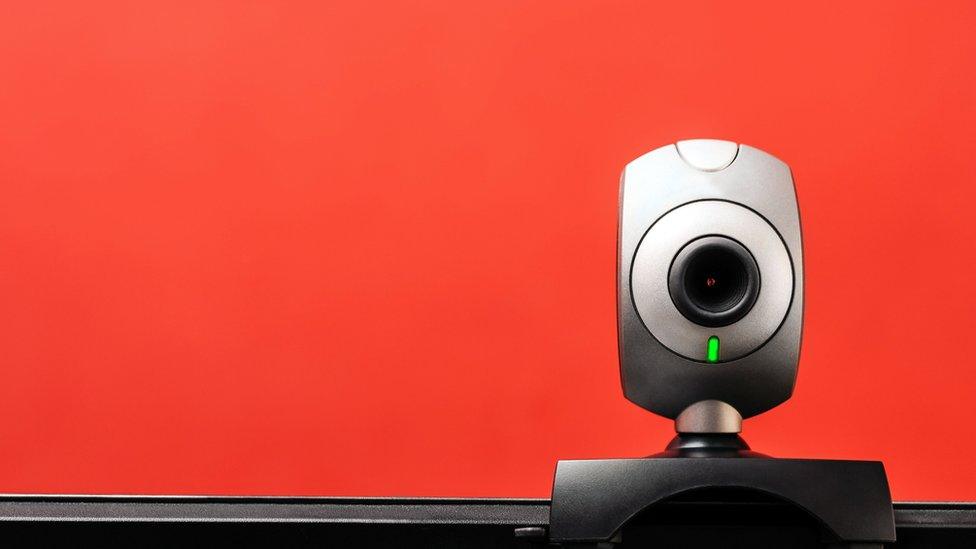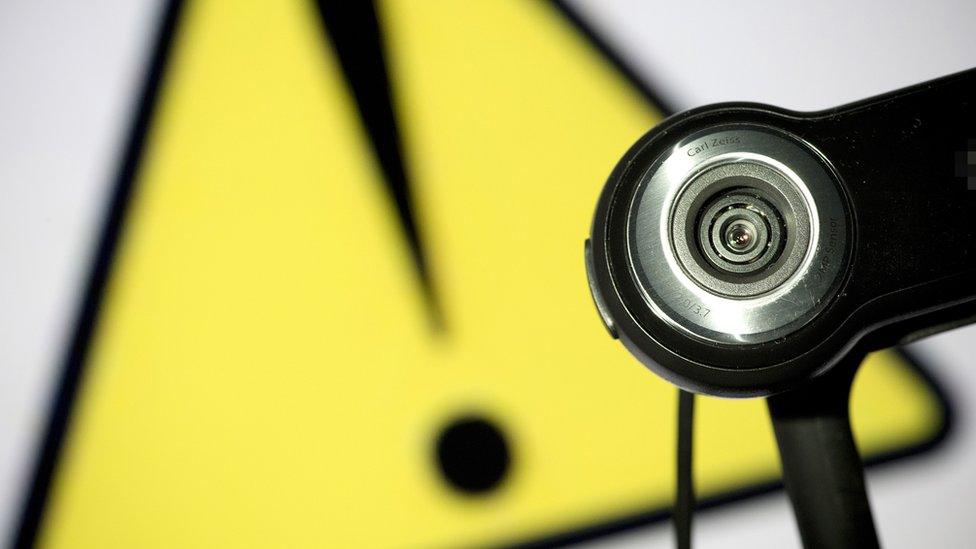Tips on how to deal with webcam blackmail, or sextortion, if you're a victim
- Published

"Sextortion" is a form of blackmail where victims are persuaded to take part in sexual acts in front of a webcam.
The criminals then threaten to share video with the victims' friends and family, unless a sum of money is paid.
New figures show that at least four suicides in the UK have been linked to this type of bribery in 2016.
Cases are being investigated by the National Crime Agency, external (NCA) and some of the victims so far have been just 14.
The man, from north Wales, thought he was talking to a local woman
Most vulnerable are men aged 21 to 30, but there is a substantial proportion in the 11-20 age group.
The NCA has joined forces with the National Police Chiefs Council to give advice to people who may have been targeted.
The NCA made this video about sextortion., external
There have been 864 reports of webcam blackmail this year.
The police will take your case seriously, so don't panic
They will deal with the matter confidentially and will not judge you for being in this situation. You aren't alone.

This is an image from the NCA's video
Don't pay anyone anything
Blackmail is a crime, you must never pay the offender.
Many victims who have paid have continued to get more demands for higher amounts of money.
In some cases, even when the demands have been met the offenders will still go on to post the videos.
If you have already paid, check to see if the money has been collected.
If it has, and if you are able, then make a note of where it was collected from. If it hasn't, cancel the payment.
Avoid any further communication with the criminals

Take screen shots of all your communication.
Suspend your Facebook account (but don't delete it) and use the online reporting process to report the matter to the social media platform to have any video blocked and to set up an alert in case the video resurfaces.
Deactivating your accounts temporarily rather than shutting it down will mean data is preserved and will help the police to collect evidence.
Don't delete! Save any evidence you can
No matter how embarrassing it may be, keep a note of all details provided by the offenders.
And finally, remember, you are the victim of organised criminals, you're not alone and confidential support is available.
If it's happening now, call 999 and report it to the police.
If you're under-18, report it to the Child Exploitation and Online Protection Command, external - or Ceop for short.
There's also advice about staying safe online at BBC Advice.
Find us on Instagram at BBCNewsbeat, external and follow us on Snapchat, search for bbc_newsbeat